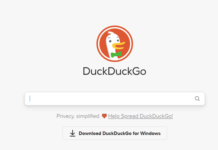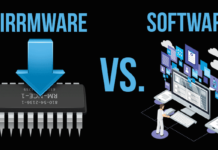How to delete your digital footprint? That’s what this piece is about. Well, technically, it’s impossible to delete what’s already stored about you. Obviously, there are a few exceptions and I’ll show you how to delete that existing data.
However, it’s best to make sure nothing you do in the future can be used to profile or track you.
Almost everything on this article is either absolutely free or dirt-cheap and more than worth its price. Also, everything is optional. There’s nothing here that you must buy to prevent yourself from being tracked.
That been said, let’s get to the point.
What is a Digital Footprint?
Before you can delete your digital footprint, you need to know what exactly you need to delete, eh?
The digital footprint is basically a breadcrumb that can be used to trace your online AND offline activities and even real-life identity.
In simpler words, you leave a footprint for everything that you do online. Visiting a website, making a purchase, posting on social media, using your e-mail ID almost anywhere, and so on.
Who collects/keeps these footprints? Nearly everyone (or everything) that you use to connect to the internet.
Let’s get you a better idea.
Who/What Collects Your Digital Footprint?
If you understand this right, you can pretty much come up with ways to delete your digital footprint on your own.
Now, I can either explain this to you in very technical terms or everyday words that you actually understand. Let’s choose the latter eh?
So, here are your culprits, and here’s how to avoid them.
Your ISP
This is the first and biggest spy when it comes to your digital footprint or online activities.
ISP stands for Internet Service Provider. It’s basically the company which gives you your internet.
To connect to the internet, you need an IP address. Your ISP assigns you this ISP every time you connect. This is almost the first step for you, connecting to the internet. As soon as you’re connected to the internet, the ISP knows who you are, and what you’re doing.
Primarily, the ISP logs which website you visit. In many cases, they even censor websites for political, religious, or other reasons.
It’s one of the biggest spies because your govt. generally has direct control over these providers. They can be asked to share your activity log or any other data they have about you at any time.
Best Way to Delete Your Digital Footprint – Get a VPN
The first-ever footprint you ever leave is your IP address. If you can get rid of your IP address, nothing you do online can be connected to you (as long as you do not manually share additional information).
Get a VPN. Once you connect to the internet, your ISP knows you just connected to the internet. However, you can connect to a VPN as soon as you connect to the internet.
As soon as you connect to a VPN, the VPN replaces your IP address with a fresh IP of its own.
As far as your ISP is concerned, you connected to this new (VPN) IP and that’s it. They can’t monitor, trace or track anything else you do next. Everything you do is now done using the VPN’s IP.
Which VPN is the best you ask? NordVPN or ExpressVPN. Here’s why:
- Its no-log policy is publicly audited. Unlike many other VPNs, it doesn’t secretly log you and this has been independently proven multiple times.
- It’s not based in the U.S and isn’t part of the PRISM program. It’s a Panama-based VPN.
- It’s optimized for the dark web.
- It’s one of the cheapest VPNs in the industry.
If you are a homeowner and home office setup and want to protect your all devices then with your VPN services like Nordvpn, ExpressVPN, and ProtonVPN, then you need a VPN enabled DDwrt Enable Router. That can encrypt all device data with only a few clicks.
Your Browser
Most of you reading this are probably using Google Chrome or Safari, aren’t you? Both of these browsers are pretty big on data collection, Chrome more so than Safari in my opinion.
When you’re using Google Chrome, it knows exactly which websites you’re visiting. How much time you’re spending on each website? What you’re searching for? What you’ve purchased recently? and so much more.
Safari (and most other traditional browsers) use similar cookies to trace your activities.
How to Delete Digital Footprint from Google Chrome?
You basically need to go to your Google Chrome settings > Privacy and security > cookies and other site data > and then turn on sending the “Do Not Track” request with your browsing traffic” option.
![]()
The easier solution to this is just to click here. The link will directly take you to the page and you can enable the DND request faster.
Let me be honest. This wouldn’t change much. Google Chrome still tracks you massively. Let’s get rid of that eh?
No-Footprint Browser – Brave Browser – https://brave.com
Brave is almost identical to Google Chrome. It’s literally made from the same code as Google. Just without its trackers.
This means you wouldn’t have to learn a new browser. The interface, features, and most other things are exactly how they are on Google.
However, Brave very clearly states that it doesn’t trace/track you, or your searches. Hence, unlike Google, it doesn’t use your activities to build your profile. It’s obviously free.
Tor Browser – https://www.torproject.org
Tor is another browser you can use. This is a more hardcore solution. That’s primarily because it routes your connection through a number of different “nodes” before your request reaches the website you’re trying to visit.
This serves two purposes. First, your ISP can’t trace/track you because Tor browser changes your IP address. Secondly, the website you reach can’t trace you back to your original IP either.
Do note that Tor is primarily an “onion” dark web browser. Hence, I wouldn’t recommend using it for everyday clearnet use. It doesn’t always load images/videos right as it tries to disable JavaScript and other elements.
Search Engines & Social networks
To get to this page, you either used Google Chrome, Bing, or Yahoo, didn’t you? This clearly means the search engines know what you were searching for.
Most of you use social networks. You post on those networks. Those posts, comments, and interactions contribute towards your footprint as well.
So, let’s first discuss how to “delete” your digital footprint. After that, we’ll discuss how to avoid leaving any digital footprint to being with.
No Footprint Search Engine – DuckDuckGo – https://duckduckgo.com/
DuckDuckGo is the perfect search engine to shift to if you’re trying to escape Google.
It has a pretty impressive index and is massively against tracing/tracking users and their activities. In fact, it even shares some data on its homepage that you’d be interested in:
Towards the same end, the search engine even has in-built tracker blockers.
You can use DuckDuckGo to search for anything and it won’t remember or log what you searched for.
Unlike Google, it doesn’t “collect personal data to show personalized ads”. Rather, its ads are completely based on your current search and the keywords you enter.
It even has Android/iOS apps and even a Google Chrome extension you can attach to your browser.
Apps and Connectivity on Your Phone
The digital footprint isn’t just limited to what you do on your computers. In fact, a large part of your footprint originates from your cell phones.
Unfortunately, you can’t completely turn off your digital footprint from your phone if you wish to function normally in 2022.
E.g. turning on your GPS tells nearly every app on your phone exactly where you and where you’ve been. However, you can’t use apps like cab hiring, food ordering, or even some e-commerce apps without GPS, can you?
The other major leak is signing in to apps. You often simply click on the “Sign up with Facebook/ Google” when you download a new app. This sure makes the process faster but tells Google/Facebook what you’re doing.
Delete and Decline Cookies
Cookies are basically elements (lines of codes) a website places on your computer/phone. They do this so the website can be loaded faster in the future, the sites can show you better ads and remember your preferences.
Recently, it became mandatory for websites to “inform users” if a website uses any kind of cookies.
I’m sure you’ve seen these pop up every time you visit a new website. They may be placed at different places but they’re displayed for sure.
![]()
You’ll always find either a “reject” option or an option to check the “cookie settings”. Once you go inside the cookie settings, you can choose which cookies to accept/reject.
It’s best to reject all cookies. Do note that you’d still be able to browse the website as you normally do.
Final Words – How to Delete Your Digital Footprint?
I’d say start with a VPN. After that, be sure to not access “personal accounts” as far as possible. By personal accounts, I mean bank accounts/ social networks, and so on.
Obviously, switching to Brave, Tor, and DuckDuckGo are some other measures you can take.
If you’d like, you can also switch from Gmail to Protonmail. While it’s not exactly a “tracker solution”, e-mails still contain tons of trackers.
Do note that these are just the basics. You can do a lot more to delete your digital footprint on the web.



















